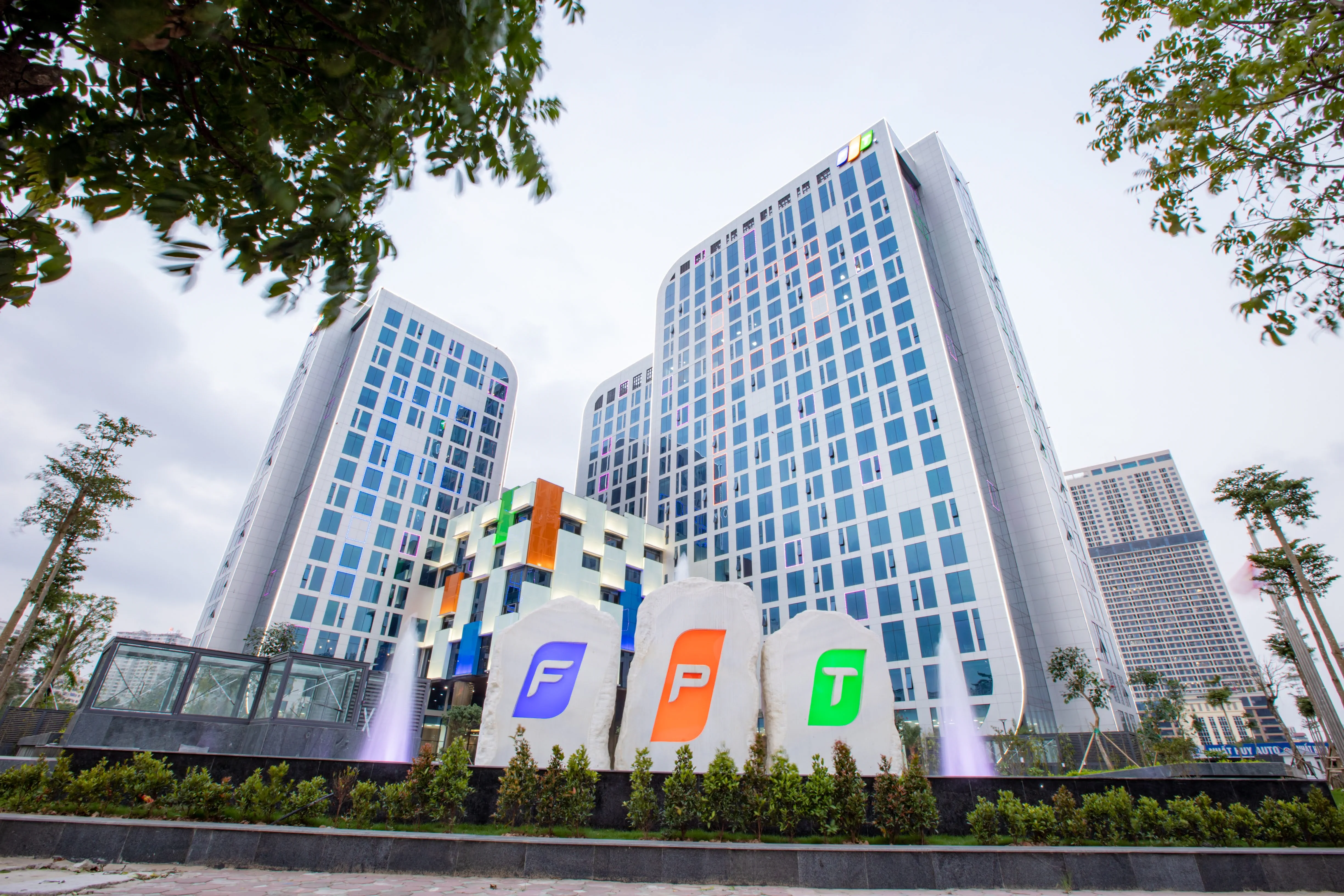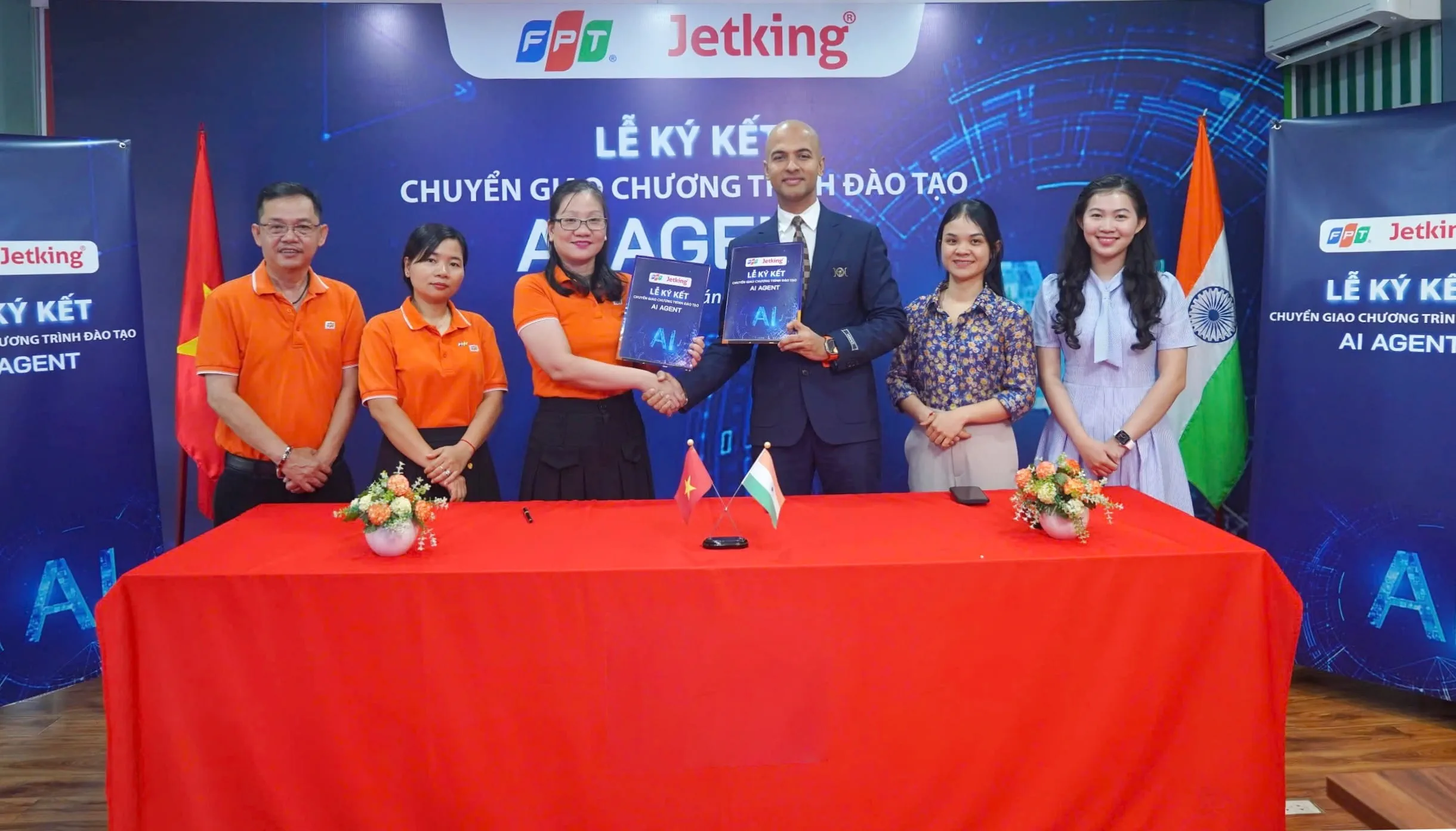FPT puts forward practical policy proposals with National Assembly Supervisory Delegation
•
02/04/2025
This morning (April 2), the Supervisory Delegation of the National Assembly Standing Committee paid a working visit to FPT Corporation to assess the implementation of policies and laws related to workforce development, particularly the training and deployment of high-quality human resources to meet the demands of socio-economic growth.
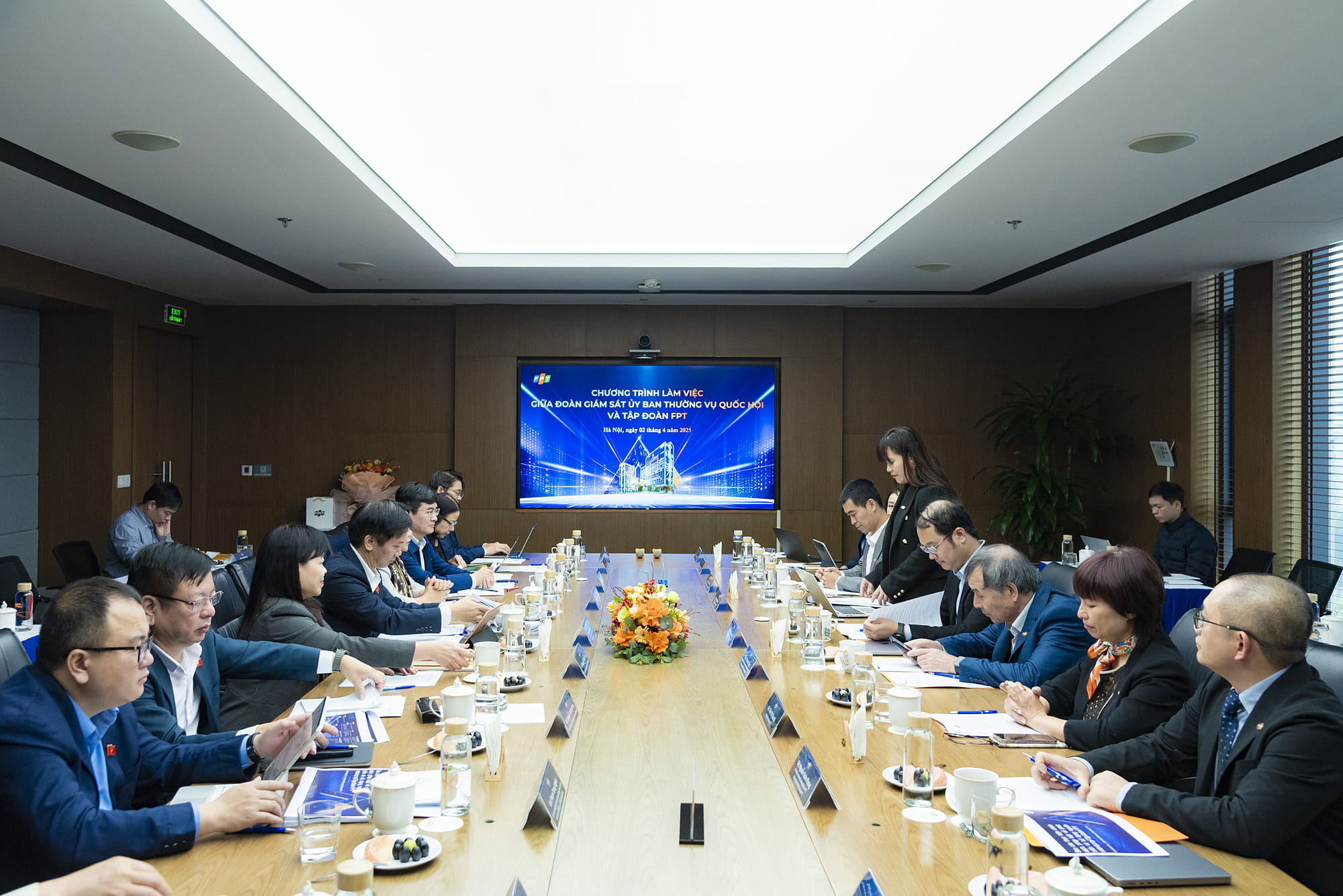
The working session between FPT Corporation and the National Assembly Standing Committee's Supervisory Delegation was held on April 2.
Opening the session, Ms. Nguyen Thi Mai Hoa, Vice Chair of the National Assembly’s Committee for Culture and Society, emphasized that in response to practical demands, developing high-quality human resources is one of three strategic breakthroughs for driving national socio-economic development. This workforce is a decisive factor in shaping a country’s competitiveness and long-term sustainability, Vietnam included.
Ms. Hoa noted that FPT stands out for successfully integrating education and workforce development into its operations. She expressed her hope that through candid and in-depth dialogue, the session would yield productive discussions and practical takeaways.
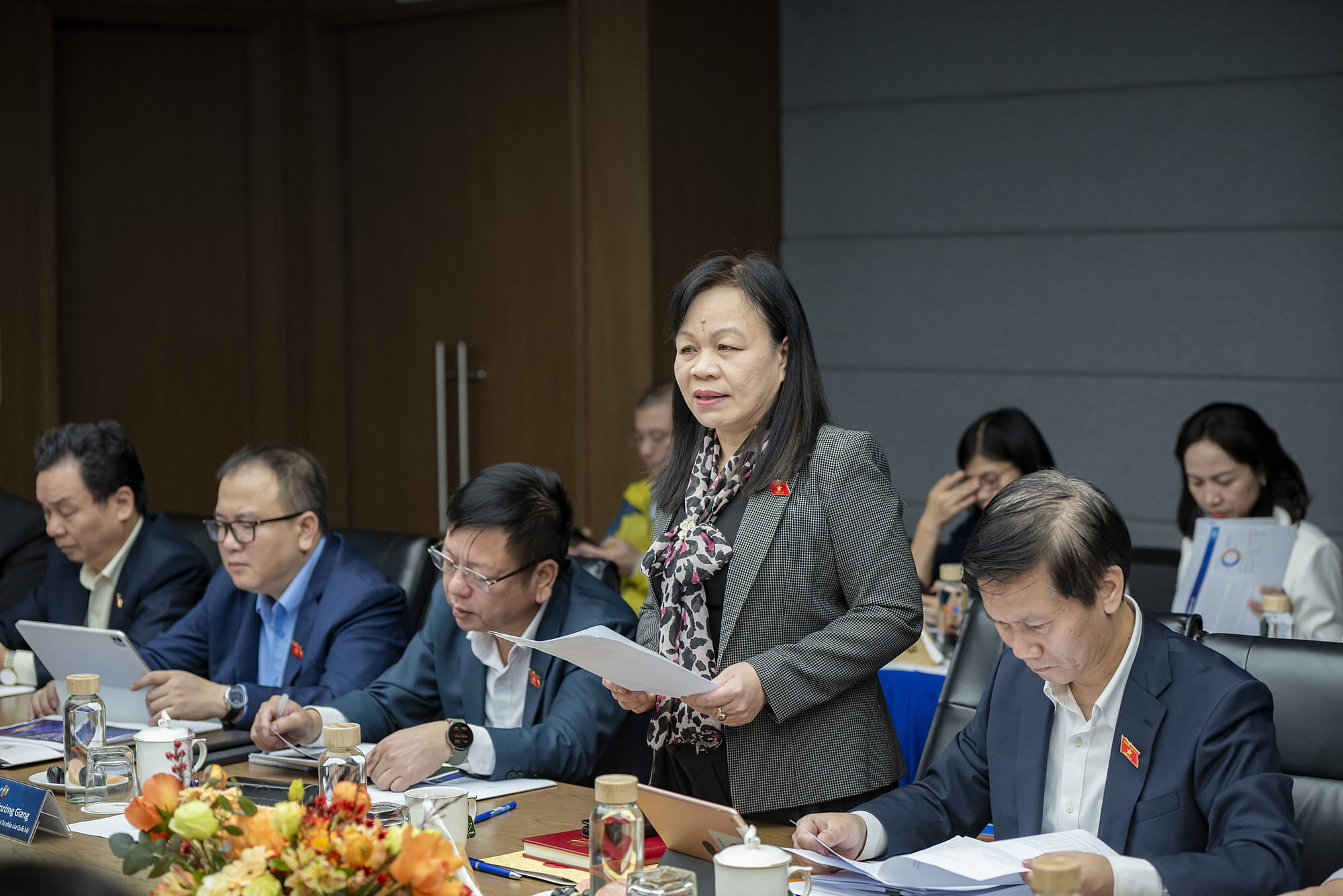
Ms. Nguyen Thi Mai Hoa, Vice Chair of the National Assembly’s Committee for Culture and Society, delivered opening remarks at the session.
In his report to the delegation, Mr. Chu Quang Huy, Chief Human Resources Officer at FPT, outlined the Corporation's diverse workforce, encompassing a wide range of cultures, religions, ethnicities, languages, age groups, and qualifications. As of December 31, 2024, FPT employed 83,826 people across more than 30 countries, including over 3,700 foreign employees from 87 nationalities, with key talent from the US, Japan, Slovakia, Malaysia, Mexico, and the Philippines. Over 80% of the workforce holds a bachelor's degree or higher. All full-time employees in Vietnam are fully covered under social, health, and unemployment insurance in accordance with local labor laws.
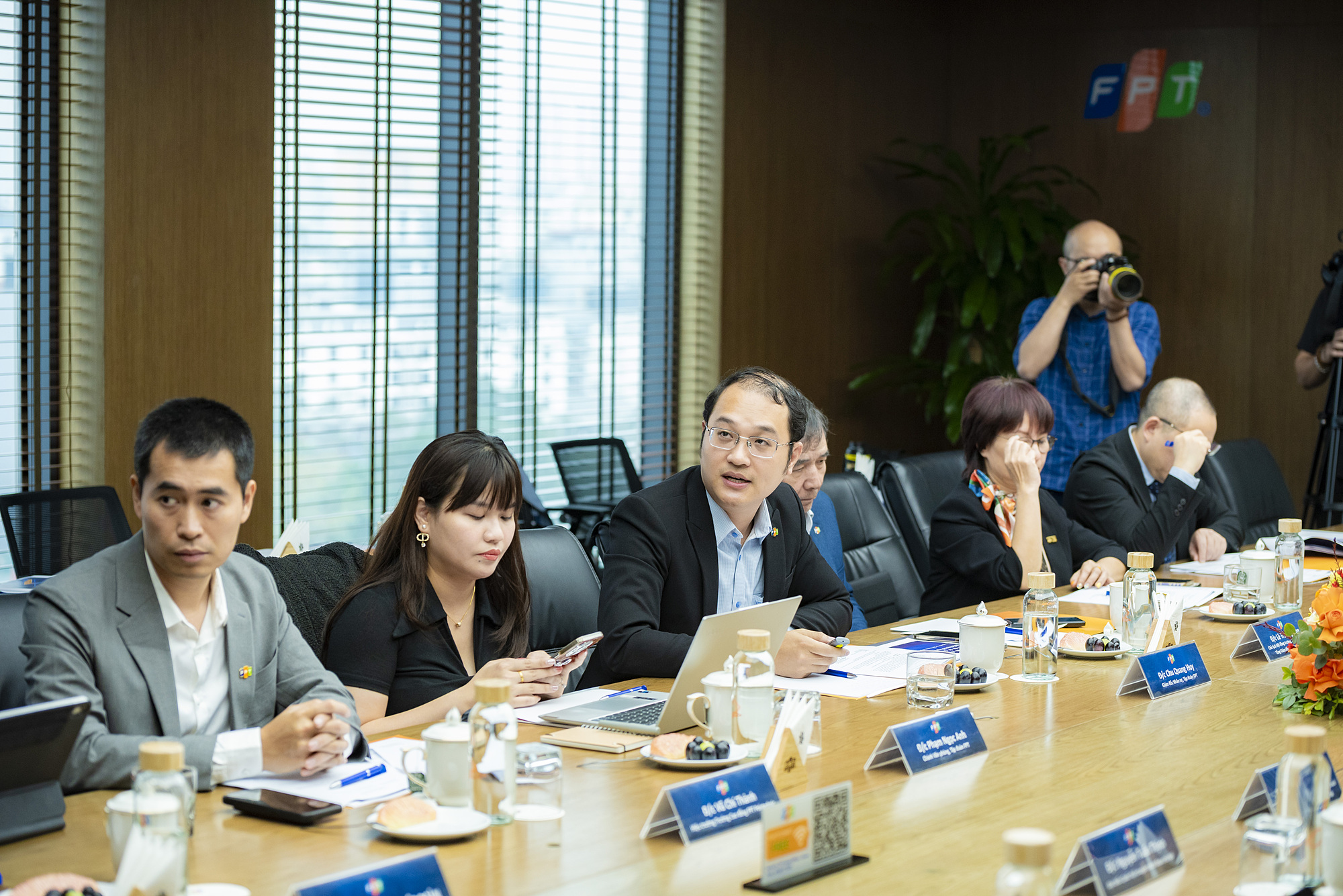
Mr. Chu Quang Huy, Chief Human Resources Officer at FPT, presents FPT’s workforce development and high-quality talent strategies to the Supervisory Delegation.
At FPT, employees are actively encouraged and generously supported to enhance their professional, technological, and soft skills, cementing the Corporation's status as a global tech powerhouse. In 2024 alone, FPT invested nearly 185 billion VND in internal training. In parallel, FPT has expanded its education ecosystem to more provinces across Vietnam to reinforce its commitment to national development, especially in nurturing tech-savvy talent in fields like AI, STEM, and Robotics. By the end of 2024, FPT continued to break new records in the education sector with 67 schools nationwide, expanding its presence to 28 provinces and cities, and serving a total of more than 152,000 students across its system.
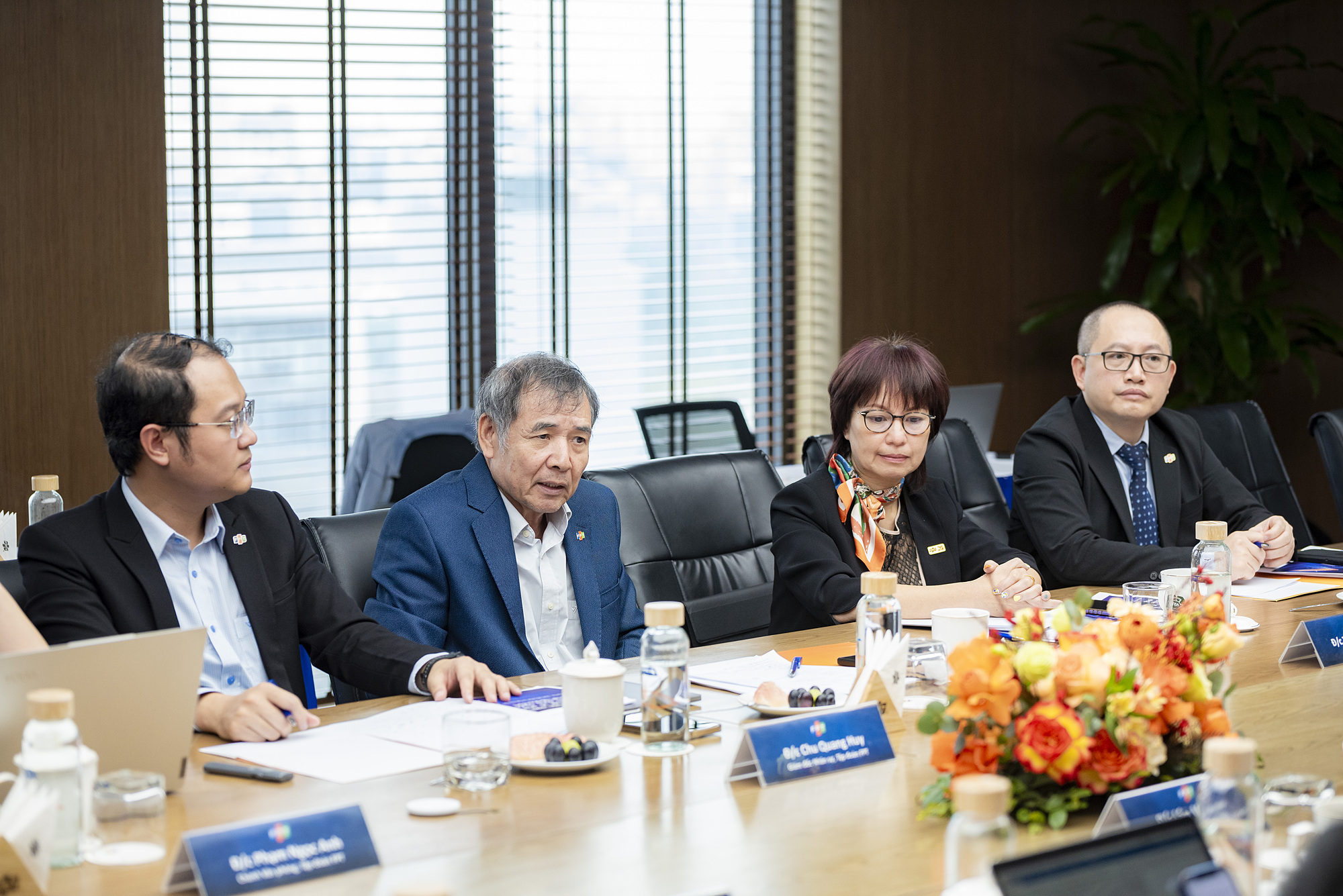
Numerous topics were actively discussed between the two sides during the session.
During the meeting, FPT proposed that state policies aimed at attracting overseas Vietnamese talent, fostering international and domestic cooperation, and streamlining administrative procedures in recruitment and labor management be further refined. In particular, FPT recommended simplifying the work permit and visa processes for foreign experts.
In addition, the Corporation called on the government to introduce personal income tax incentives for specialists working at registered high-tech enterprises or in designated high-tech zones such as Hoa Lac and Da Nang. FPT also suggested increasing dependent deductions to help attract and retain top-tier talent.
After reviewing the report, members of the Supervisory Delegation commended FPT's thoughtful and well-prepared presentation, which closely aligned with the requested focus areas. To provide a fuller picture, they recommended that FPT include statistics on the percentage of graduates from FPT's educational institutions who are employed within the Corporation versus externally and how well these graduates meet the demands of external employers. They also requested details on the proportion of formal vs. informal training programs.
Further clarification was also sought on the qualifications of lecturers involved in semiconductor education and FPT’s roadmap for developing high-quality human resources in this field. The delegation expressed interest in how FPT’s education and training efforts compare to international benchmarks.
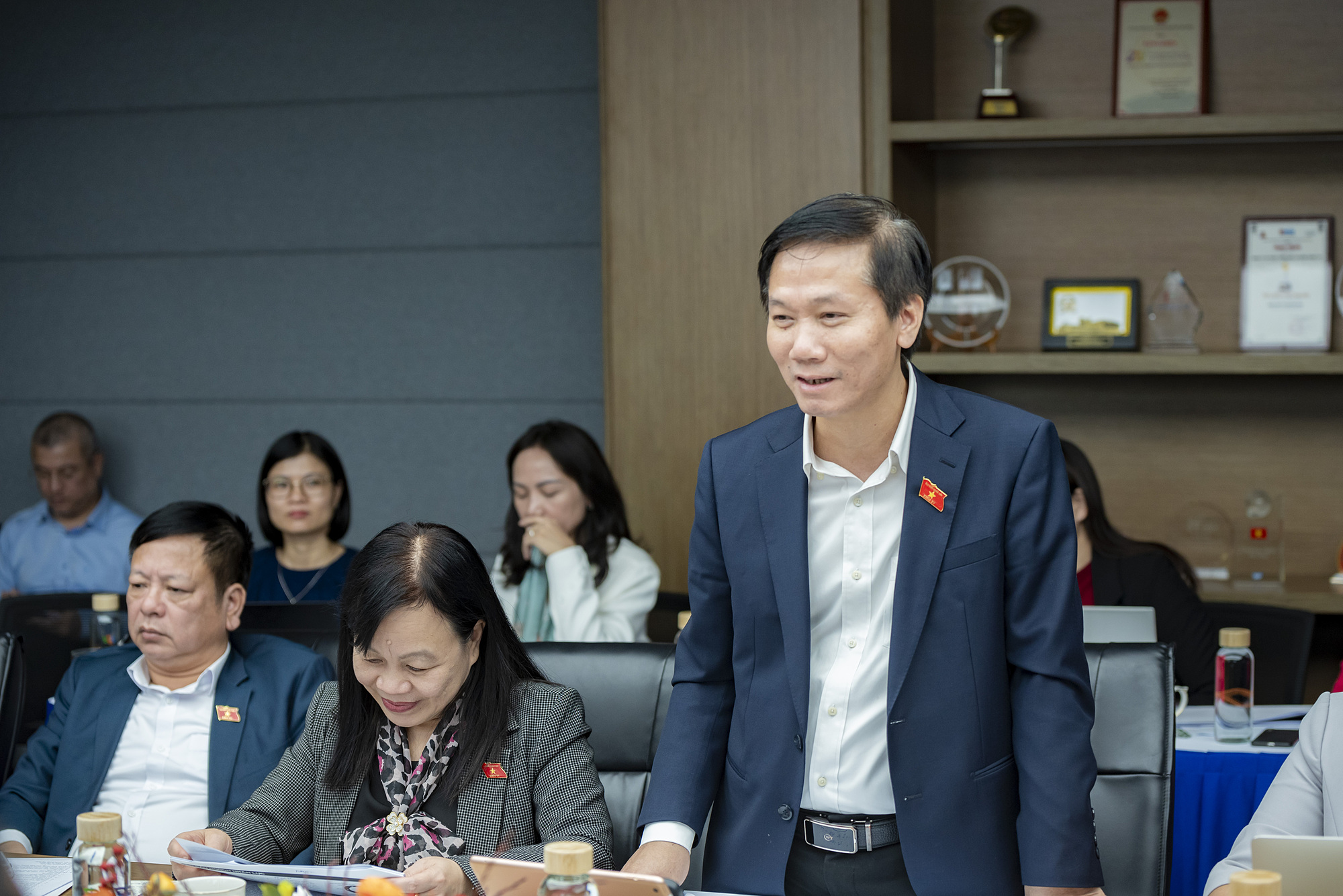
Mr. Lam Van Doan, Deputy Chair of the Committee for Culture and Society, delivered closing remarks.
In concluding remarks, Mr. Lam Van Doan, Deputy Chair of the Committee for Culture and Society, acknowledged FPT's achievements and proactive policies in workforce development and talent attraction. However, he stressed that policy recommendations should be more clearly linked to practical realities and more comprehensively reflected in FPT's report. Based on the discussions, Mr. Doan affirmed that the Supervisory Delegation would carefully review and integrate relevant insights into its official monitoring report, contributing to refining legal frameworks related to workforce utilization and development to better align with Vietnam's socio-economic growth goals.


